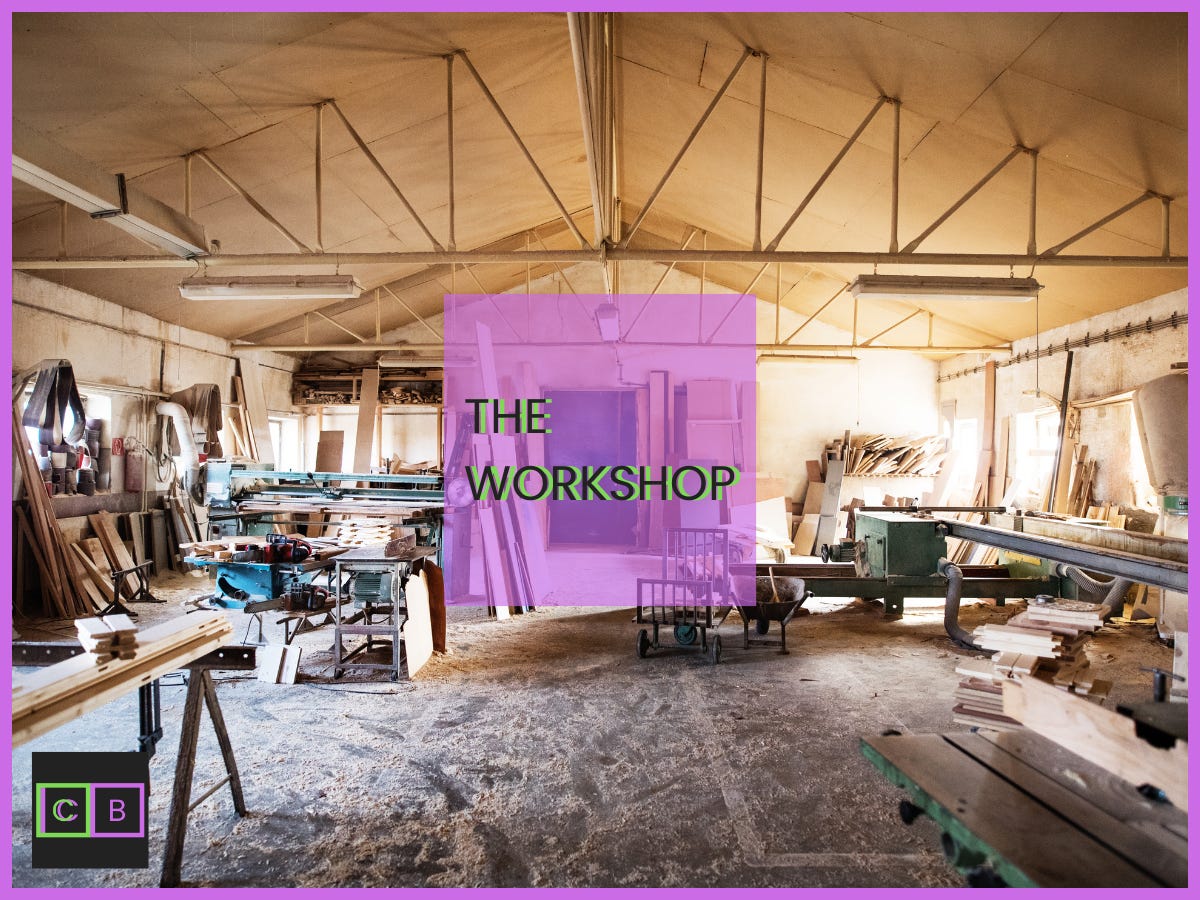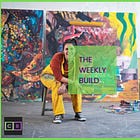A Call for Creatives to Go Big
The world needs creative founders—who care about other creators—to think big. Here’s where to start.
The Creative Build is now completely free! You can help support my mission to bring business education to creative professionals by buying me a coffee or sharing this publication with others.
Building a creative business is an act of defiance.
That’s a mindset shift for a lot of independent creators who have an aversion to capitalism.
I understand that feeling and I share it—even though I’m a business educator. It's impossible to ignore how big business exploits creative professionals every day. They control the creative work the world sees to shape a social narrative that suits them. And they keep the economic value creative professionals generate in their pockets.
It makes sense to want no part of that. To stay independent. To stay pure.
But here’s the thing. That’s exactly what they want you to do.
You holding back from building a thriving, independent business around your work actually helps big businesses exploit creatives.
Staying small keeps your voice small. It cedes control to big businesses who have the resources—the budget and the expertise—to drown you out.
Building your own big business that rivals theirs is a powerful way to keep them from exploiting you and others.
And you don’t have to do things their way. Your business doesn’t have to exploit anyone to be successful.
So let’s get to work.
Big Business Isn’t for Everyone
First a nod to creatives who don’t want to go down this path. You don’t have to build a big business to pay the bills. If you’re happy generating income that allows you to follow your passion and avoid menial jobs, I respect you.
And I’ll still support you. My mission is to help creatives succeed financially no matter what path they choose.
But if you want to build something bigger than that, whether you’re motivated by a call to defiance or just building a legacy, read on.
How Do Businesses Get Big?
Most businesses start with one person—the founder.
Founders start as generalists and do everything for their business early on. They develop strategy, build a product or service, market it, sell it, fulfill orders, gather customer feedback, etc.
They also become their biggest barrier to business growth.
Part of that is simple time management. One person can only accomplish so much in a year. If this is something you’re struggling with, check out my article on time management here.
Another big reason is expertise. No one person is an expert on every part of building and running a business. Any business is more likely to be successful with a team of experts focusing their work within their expertise to produce the best possible outcomes.
Check out my article on finding and building partnerships here.
Which brings us to the third reason: resources. You need money to hire experts, to invest in product, marketing, sales, and operations. Unless you start with a stockpile of wealth, you have to find it. You either need to find outside investors or to build a profitable business that generates investment capital with sales as you go.
The Money Mindset Shift
Many businesses stay small because the founder doesn’t know that getting big is even an option. If you didn’t grow up around wealth (like I didn’t), your mindset about money is probably dominated by the scarcity of it. It’s something you work for to pay the bills and survive.
But successful entrepreneurs think of money as a tool, as something they can attract through investment and sales to fuel growth.
And money isn’t actually scarce. Private donors in the US give about $20 billion to support creative endeavors every year. While data on private investment in creative businesses is hard to come by, investment in all businesses from investors like venture capitalists adds up to hundreds of billions a year globally.
But the real opportunity for creative businesses is on the sales side. In 2023, the arts and culture sector of the US economy was valued at a record $1.17 trillion. Said another way, consumers and businesses spent $1.17 trillion on creative output generated in the US. Globally that number was over $4 trillion. That’s the number you should chase.
My favorite shift in mindset came from advice I received from a kind and ethical venture capitalist several years ago:
“Building a small business is just as hard as building a big one. So you might as well build a big one.”
Her advice was news to me! It caused me to start thinking big in my own entrepreneurial pursuits. And to spend more time with successful entrepreneurs who had proven this to be true.
I hope it awakens something in you too.
This Week
It all starts with mindset so let’s work on that this week. Reflect on what’s holding you back from thinking big. What are the assumptions (often found in your negative self talk) that might be keeping your business small? Write them down and reflect on them.
Then share them. Find someone in your field who has already built a successful business and connect with them. Share your concerns about your own business and see what they say.
They’ve probably been where you are and found a way to break through.
They probably found a way to go big.
Got a question or an insight to share? Reach out or leave a comment.
Want more help like this to boost your creative business? Now’s your chance.




